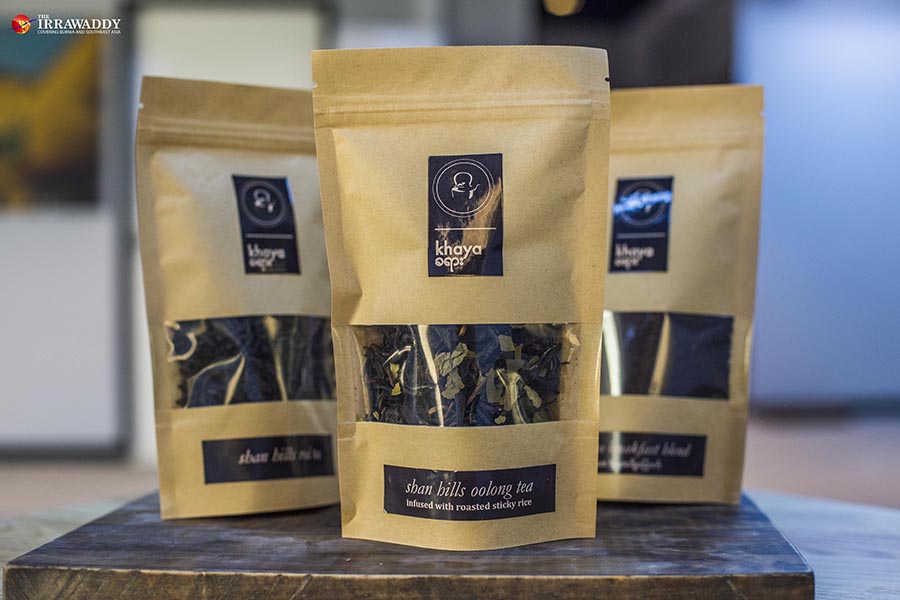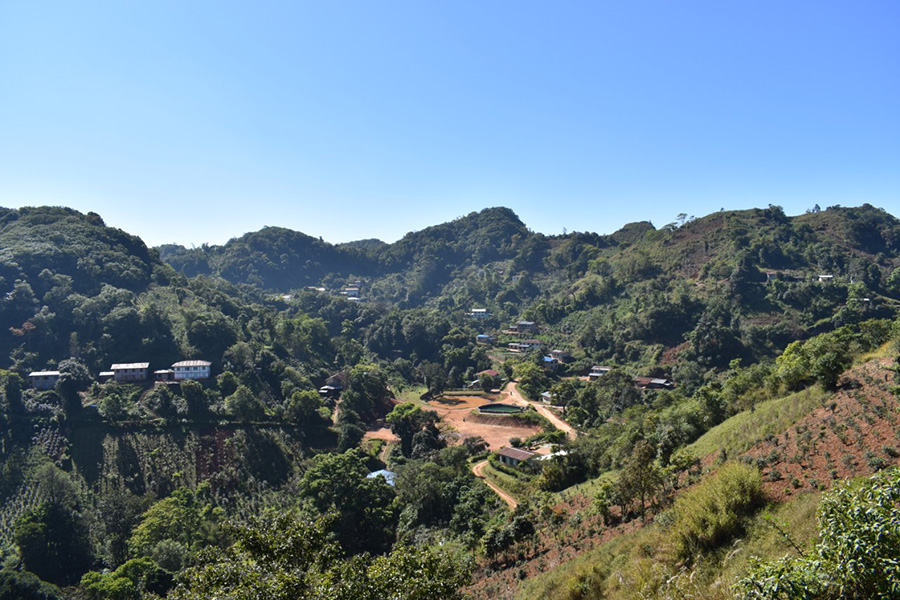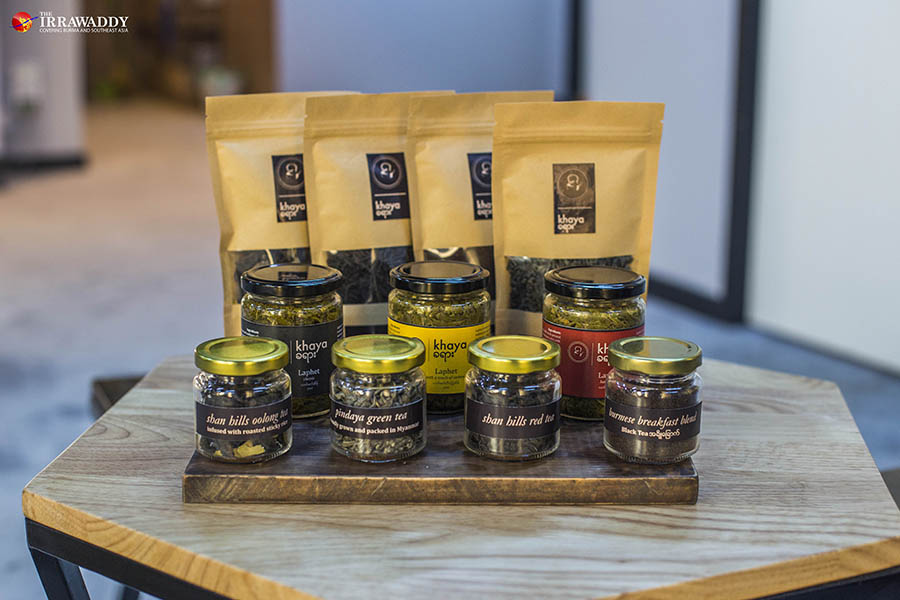YANGON — In southern Shan State, 1,800 meters above sea level, a farmer plucks leaves from mature, woody tea bushes. The leaves have not felt the spray of a chemical fertilizer nor pesticide since they sprouted. They’re collected in woven baskets on the backs of farmers who receive a fair price. They’re going to Yangon.
Sitting in a brand new office in a not-yet-finished building in Yangon’s exclusive Golden Valley neighborhood feels like a world away from the Shan hills. But here, Sandra Min and her husband, Nyantha Maw Lin, sit with bags and jars of tea — both dried for drinking and pickled for eating — recounting the story of how it all got here, how they got here, how they left their jobs as a senior executive of a financial company and a political and public policy consultant and found themselves on cold, rural Shan hillsides drinking tea with farmers.

Sandra, a self-professed non-coffee drinker, always had an affinity for tea.
“Everywhere I go I try to find the finest teas,” she said. “Myanmar already has a tea-drinking and tea-eating culture, so it’s not rocket science.”
During the time he worked with an agriculture-based social enterprise, Nyantha spent countless hours traveling on motorbikes through rural areas to connect with farmers, traders and distributors on marketing strategies and financial services.
But it’s much more than a love of tea that brought them around to creating Khaya, a premium quality, natural brand of drinking tea and the pickled version, laphet. They recognized that the underdeveloped agriculture industry was one of Myanmar’s few untapped treasures, decades behind other Southeast Asian nations. Nyantha and Sandra decided to combine their skills and know-how and create Khaya.
“Before a product gets to the market in Myanmar it changes hand more times than it should. There are a lot of inefficiencies, a lot of missed opportunities,” said Nyantha.
“When we looked at the agricultural space here in Myanmar, we saw that it’s got massive potential. You’ve got the climate for it. You’ve got the variety across the country, whether it’s altitudinal difference or topographical difference, that really allows for a lot of diversity. But it hasn’t had the decades of investment go into its upkeep and its development.”
After quitting their high-powered jobs, their tea-drinking research trips took them all across the country. They wanted to raise Myanmar’s tea industry to the standard it deserves to be at, to unlock its true potential. They looked at where they could add value to the product and connect farmers to a market that is prepared to pay above average prices for a healthier, higher quality of tea. They want to send Myanmar tea beyond the borders, and with pride.
“If we compare Myanmar tea [production] with Sri Lanka or China, we don’t get the same kind of yield. We need to plant new bushes, use better growing techniques, give [assistance] to the farmers, invest in the processing facilities and get the right certifications. Only then can we look at the export market and put Myanmar on the map,” said Sandra.
Now they work closely with farmers in Pindaya, Shan State, and other parts of the country and guide them in their farming practices. They pay them enough so they don’t need to take shortcuts or use chemical fertilizers and can take more time to produce the tea. They build trust with farmers and traders and connect them to stronger markets.

“We found tea in Pindaya in particular to be among the highest quality of tea, not just in Myanmar but just as competitive to teas anywhere else in the world,” said Nyantha.
Khaya’s range of teas was launched earlier this year and consists of four different drinking options and three pickled tea varieties that are naturally produced with no chemicals whatsoever. The high altitude of the Shan hills lends itself to fresher air and purer water as well as a certain type of surrounding vegetation, all of which create an overall better quality of tea.
Khaya’s oolong variety is roasted alongside leaves from the sticky rice plant that give it a distinctive sticky rice aroma. The black breakfast tea, which is fully oxidized, is the stronger, highly caffeinated version served with milk and sugar or condensed milk at teashops around the country. The red tea is the full-leaf version of the black tea; it has a similarly sweet aroma and is a full-bodied tea. This is well paired with honey and goes down well with a drop of milk and sugar. The green tea is the variety found in China and Japan and is not oxidized; it’s simply plucked, withered, steamed and roasted. It has a lighter flavor and is a good option to pair with laphet salad.

As for pickled tea for eating, Khaya produces jars of classic, hot-and-sour and cashew-infused laphet. Perhaps the most exciting of their products is the recently launched “lapenade,” a tapenade made with laphet that might go well as a spread on bread or as a salad topping.
Through Khaya, Sandra and Nyantha plan to introduce their Myanmar tea to the international market as soon as possible. But considering the time it takes for the newly planted tea bushes to yield the right quality of tea leaf, it looks like full export operations won’t be ready for another three years. Looking towards 2019, they will focus on building production volume, ideally reaching one ton of Khaya tea per day. They are currently suppliers to a number of high-end restaurants in Yangon including Rangoon Tea House, and individual orders can be made through their website. They hope to soon have Khaya on supermarket shelves as well.

















